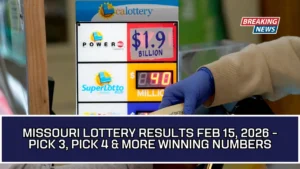Mastercard is taking a bold step toward clean energy by constructing a dedicated solar power facility to support its largest U.S. data center, located in O’Fallon, Missouri. The initiative comes as part of the company’s broader commitment to achieving 100% renewable energy usage and net-zero emissions by 2040.
Details of the Solar Project
The 40-acre solar field, currently under construction next to Mastercard’s St. Louis campus, will supply energy exclusively to the adjacent O’Fallon data center.
According to Ellen Jackowski, Mastercard’s Chief Sustainability Officer, this location processes global transactions and operates AI technologies, making it an energy-intensive hub.
“In 2023 alone, this site consumed over a third of Mastercard’s total electricity—comparable to the annual energy use of about 4,000 homes,” said Jackowski.
While the data center already generates 10% of its power through an existing solar array, the new project aims to close the gap and enable a fully renewable power system.
Driving the Shift to Clean Power
Jackowski emphasized that Mastercard’s decision to build a closed-loop solar system, separate from the Ameren utility grid, reflects the company’s values and operational efficiency.
“We grow by doing good—creating positive impacts for the planet and society,” she added.
Ameren’s current energy mix, with 60% powered by coal, makes this transition even more critical. According to Andy Stancati from BioStar Renewables, which is developing the solar project for Mastercard, Ameren’s grid in this area is the dirtiest among all of Mastercard’s U.S. sites.
“This solar initiative helps keep the data center in Missouri,” Stancati said. “Without cleaner options, relocating was a possibility.”
Industry Trends and Environmental Concerns
James Owen, Executive Director of Renew Missouri, noted that more corporations are choosing to generate their own power due to dissatisfaction with utility providers’ slow transition to cleaner energy sources.
“Big tech companies like Meta, Google, and now Mastercard are tired of waiting,” Owen said. “We’re seeing a trend of large-scale consumers moving away from utility reliance.”
Owen added that while Ameren has invested in solar via its Renewable Solutions program, it is still heavily coal-dependent. Plans to build two natural gas plants have drawn further scrutiny, despite pledges to use carbon capture technology to meet their 2045 net-zero goal.
Financial and Environmental Impact
Beyond environmental concerns, Jackowski stressed the economic logic behind renewable energy. Mastercard’s 2024 Annual Report revealed growth in net revenue alongside a reduction in greenhouse gas emissions, indicating success in separating business expansion from environmental degradation.
“This is proof that sustainability and profitability can go hand-in-hand,” Jackowski said.
With the new solar facility set to go online before 2027, Mastercard is positioning itself as a climate-conscious leader in the financial and tech sectors.
This move not only supports its corporate sustainability targets but also sets a powerful precedent for how global companies can influence local energy ecosystems.




